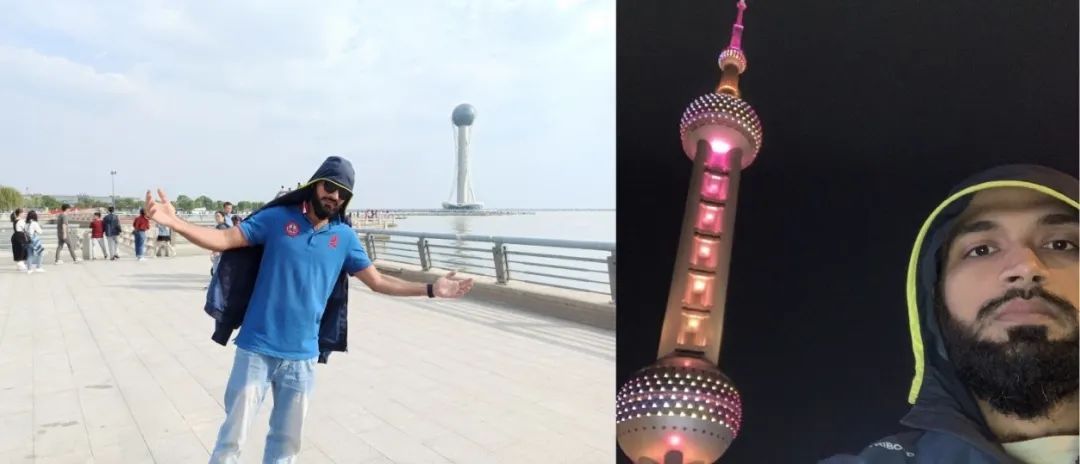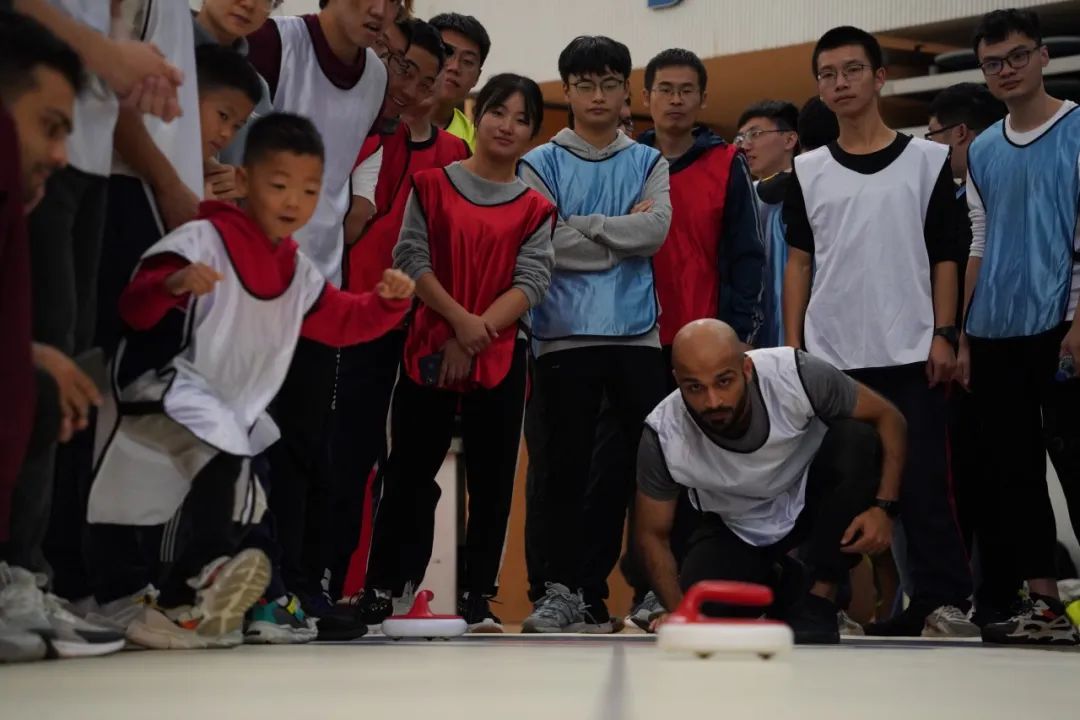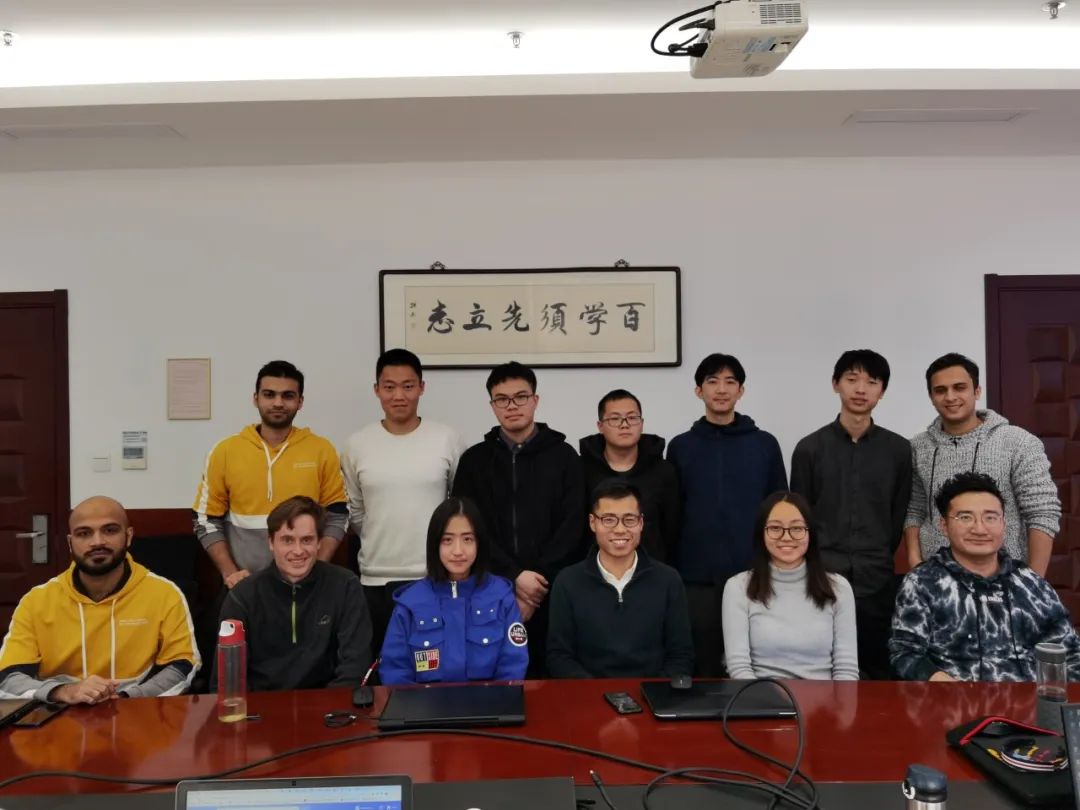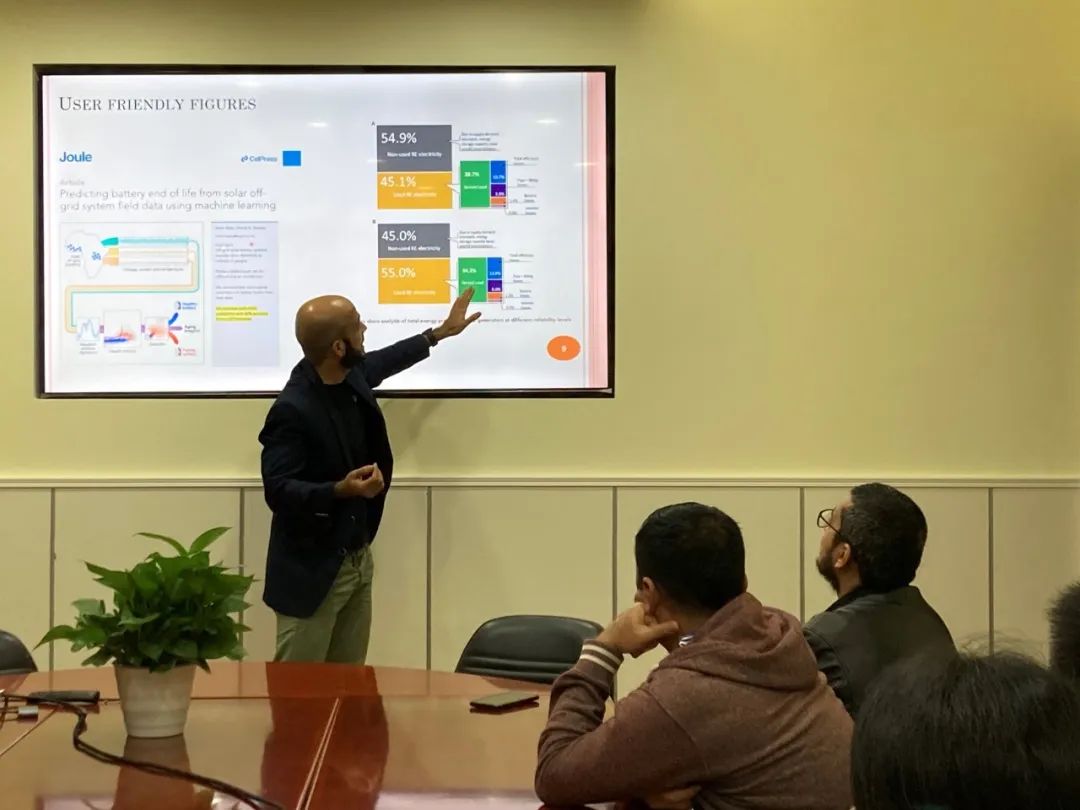
News

News
Introduction
Shahzad moved to Shanghai in 2017 to fulfill his imminent dreams of higher education in Energy Engineering. He comes from Pakistan and is the youngest in the family. Following his elder brothers, he aimed for post-graduation and among his options, he chose Shanghai Jiao Tong University (SJTU), one of the top Engineering Universities worldwide. He did a master's and later decided to continue for a PhD due to the SJTU research-oriented environment, state-of-the-art labs, conducive learning environment, and well trained faculty. SJTU provides, Shahzad says, a robust platform for collaborations with other international universities doing cutting-edge research in respective fields, which reflects in his research publications where he did four collaborative research projects, resulting in research articles published in Q1-rank Journals. Besides his research work, in his free time, he likes reading self-help books and regularly hitting the gym to stay fit.
Why China
Shahzad sees this question as "Why not China"? China has substantially thrived during the last years in all fields of life, including Medical, Engineering, Aeronautics, and Space. Seeing the rapid development in every area of life, shahzad says, it would have been hard luck to miss the opportunity not only closely to observe this evolutionary development but also to work with hardworking and disciplined Chinese people like his supervisor, Dr. Tao Ma. China has an environment that supports evolutionary ideas and ensures the communication of developed new knowledge with the world. Besides, the historically close ties between shahzad home country and China have been a catalyst for him to study hard, hoping not only to take part in the technological development of his home country with fresh scientific research but also to serve to strengthen the ties between two countries further.

Shahzad says that pursuing higher education in well-renowned international universities like SJTU provides a platform not only to enhance cross-cultural communication skills but also to understand the cultures of various countries. As a result, he made several friends of various nationalities, enjoyed learning cross-cultural exchanges, and participated in various cultural events organized by the international student union of SJTU. Shahzad enjoyed these cultural exchanges as a core member of the Mechanical International student union and arranged many inter-departmental activities, including the welcome orientation for new international comers.
Being in China for six years, Shahzad gathered insights into the country's history, culture and native norms. China is a place of different ethnic groups, which reflects its cultural diversity. If Shahzad has to choose one quality from the custom of Chinese people, it is loyalty and kind-heartedness. As China's largest city, Shahzad found Shanghai beautiful as he visited different tourist spots, including inspiring museums, modern architecture, classical parks, spiritual temples and tea houses. In addition, Shahzad says traveling around Shanghai is a unique experience due to its fabulous metro train network, buses and taxis. Apart from thoroughly exploring Shanghai, Shahzad also visited several cities like Suzuo, Jiangsu and Changzhuo and found them rich in architecture, food and seeing spots. Shahzad believes that the time spent here in China will forever remain a valuable asset in my life.

Research Work
Being here since 2017, Shahzad has developed highly competitive research and critical thinking skills. Also, Shahzad continued, meeting opportunities with other international scholars/PhDs here in SJTU broadened his research horizon that he would have never had the chance to meet with. Shahzads' PhD thesis is titled "A techno-economic-environmental study for designing off-grid renewable energy systems." His research revolves around helping global decarbonization efforts by proposing robust and reliable energy systems with a high penetration of variable renewable energy like solar and wind energy. Small-to-medium scale renewable energy systems are gaining attention, Shahzad says, to meet the United Nations' sustainable development goals, i.e., ensuring access to affordable, reliable, sustainable, and modern energy.
He is an energy system-modeling engineer focusing on the rapidly evolving electricity sector. His research interest includes modeling and optimizing near-zero carbon energy systems and evaluating the role of energy storage in future variable renewable-based electricity systems. Shahzad aims to contribute to the carbon neutrality efforts and ensure affordable carbon-free electricity access to all communities, including those living in remote/off-grid areas. Shahzad quantitatively figured that about 1 billion people worldwide still have partial access to or do not have access to electricity and clean energy for cooking. Most of them live in remote areas or isolated villages. Shahzad was happy to share that fortunately, these areas are typically rich with solar/wind resources creating an opportunity to meet their much-needed electricity needs.

The last six years have taught Shahzad that research can be challenging, but it enables the researchers to know/discover the unknown, which motivates him. Shahzad says that research is a never-ending barrage of knowledge where researchers are constantly bombarded with a continuous influx of new knowledge, whether in the form of publications or research meetings. This led the researchers to propose new/novel ideas/suggestions further polishing the previously published work. Shahzad has fully embraced this culture of new knowledge development, which is evident from his improved reading/writing capabilities. During his PhD, he wrote several energy system modeling algorithms and proposed numerous novel ideas to design socio-techno-economic-environmentally robust renewable energy systems, particularly exploring the viabilities of energizing remote areas or locations impossible to connect with national grids.

Shahzad reiterates that research is a summation of failures, something new potential researchers must keep in mind. There is a saying that research is difficult for students accustomed to getting the right answers. Despite having published 12+ articles, he received more than 20 rejections, but Shahzad kept improving his models and key findings, which is the beauty of science, as always claimed that science is incomplete or open to ideas. Research is all about practicing evolutionary ideas and being stuck or wrong time after time and still feeling perfectly fine as long as we learn something each time. Research is hard due to the immersion in the unknown, and sometimes even we do not know that we are asking the right question. Research is a transitioning process: from learning what other people have presented to developing your new knowledge.
Achievements
Shahzad authored over 12 Q-1 rank publications during his six years at SJTU. The quality of his research work is evident from the citations. His work has been cited more than 1200 times during the last three years, validating that he has done something positive and developed new knowledge that is helpful for the scientific community. Shahzad was among the top one percent most cited authors on the Web of Science for two consecutive years, 2021 and 2022. He is a recipient of University and Chinese government scholarships. International universities have invited him to present his research work to new incoming PhD students, which itself is a kind of motivation and validation, Shahzad says. Seeing Shahzad's research achievements, he was selected best international student by the School of Mechanical Engineering in 2022 and the best international graduate student of SJTU in 2023. Different SJTU unions have frequently invited him to deliver talks to share his research experience and guide new PhD students about "how to conduct research."
Future Plans
The conventional route for a PhD graduate is continuing research work as a postdoc fellow, which Shahzad aims to follow. Shahzad graduated in June 2023. As a proactive researcher, Shahzad started to look around for postdoc opportunities in the Summer of 2022. He applied for more than 40 postdoc positions, including some top cutting-edge research institutes in his field, like Carnegie Institution for Science Stanford, Imperial College London, and the University of Oslo. Shahzad opted for the University of Oslo among several postdoc options due to his research interest alignment with the project. This project hypothesizes that "Net-zero carbon targets could be achieved effectively and rapidly by addressing the local oppositions to the rapid deployment of wind energy." Shahzad says achieving energy sector net-zero decarbonization targets is almost impossible without addressing the energy justice and climate justice-related most pressing issues, which is why I chose this project. When wealthier communities/regions oppose renewable energy-based projects, it slows the transition away from fossil fuels in poorer communities, an environmental injustice called "energy privilege," Shahzad says.
In this Europe-based collaborative 'Wind for Future' project, Shahzad will enjoy interdisciplinary research at the intersection of energy systems modeling and techno-economic social fields. Shahzad is very excited about his postdoc, as it will be the first time he will be collaboratively working with diverse and vibrant research groups of universities. He will be digging deep into understanding the techno-economic-social implications of net-zero energy systems, particularly taking into account the young people's perspective in evolving energy systems modeling and helping address the bottlenecks that hinder achieving deep decarbonizing targets. Shahzad believes this opportunity will help not only widen his research horizon in the field of net-zero energy system modeling but also align with his aim of "to contribute to carbon neutrality efforts and ensure affordable carbon-free electricity access to all communities, including those living in remote/off-grid areas."

Shanghai Jiao Tong University
Address: 800 Dongchuan Road, Shanghai
200240